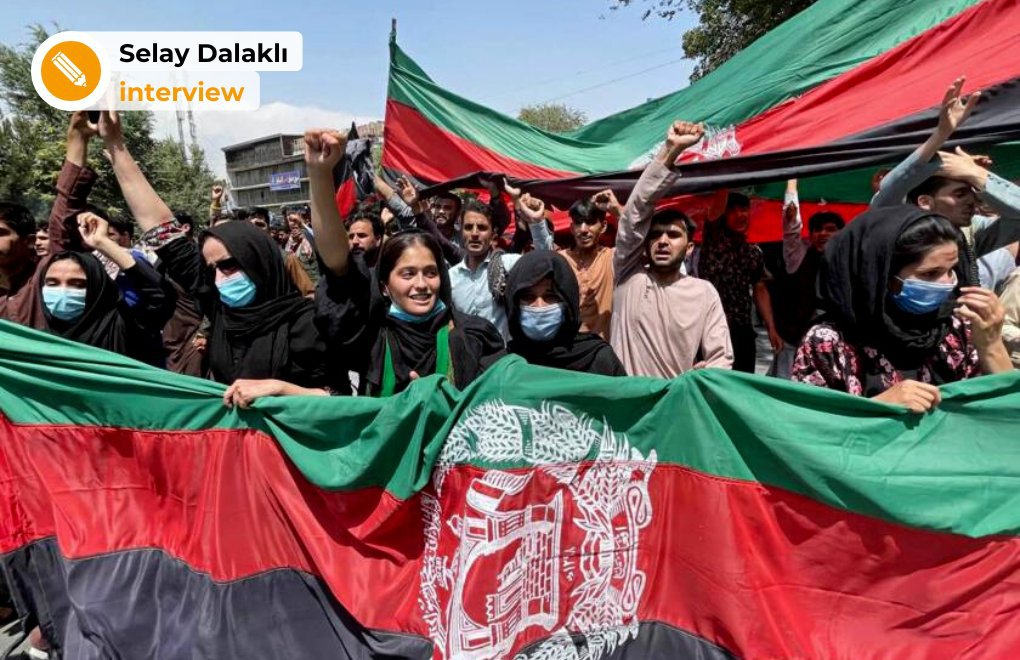* Credit: Boğaziçi Direnişi (Boğaziçi Resistance) / Twitter
Click to read the article in Turkish
This article has been published as part of the "Resilience in Journalism" article series which sets out to offer critical reviews exemplifying hate speech and disinformation in the media as part of the Resilience Project, of which the IPS Communication Foundation / bianet from Turkey is one of the partners. |
"A new attempted provocation at Boğaziçi University! They put up a tent at the campus and hang the LGBT rag" (Daily Takvim. July 3, 2021)
"Investigation into the Kaaba provocation at Boğaziçi University; 4 LGBT deviants taken into custody" (Daily Yeni Şafak. January 30, 2021)
"The CHP people are on [the job]; the financiers of the LBGT protests disclosed" (Daily Yeni Akit. February 10, 2021)
These are only some of the discriminatory and hateful news stories targeting the LGBTI+s during the Boğaziçi University protests.
Even the headlines of these news reports, 'the mildest' of which we try to pick – so to speak – so that we will not further spread the discriminatory hate speech of the pro-government media, are more than enough to show what kind of hate narratives, discrimination and targeting remarks the LGBTI+ community have faced during the protests against the appointed rectors.
To make matters worse, all of these news reports follow the detentions, investigations and court cases targeting the students for the sole reason that they opened a rainbow flag at their campus; in some cases, the news reports themselves may even pave the way for the arrest of students – when they are coupled with the targeting remarks of the politicians.
But what do different constitutiencies of Boğaziçi University protests think about the media representation of LGBTI+s?
How do all these negative news stories affect the LGBTI+s?
What about positive examples? What do the journalists trying to report their news from a rights-based perspective do? Or, to put it differently, what makes a news report respectful for LGBTI+s' rights and existence?
We have talked to Boğaziçi University student Olcay Atik, journalist Dilek Şen, journalist and LGBTI+ activist Yıldız Tar, academic and documentary filmmaker Can Candan and lawyer Levent Pişkin...
'They don't ignore but portray as enemies'
The media has continued with its now-conventional hostility towards the LGBTI+s during the Boğaziçi protests as well...
This is how Yıldız Tar from the Ankara-based LGBTI+ Association Kaos GL starts to explain how LGBTI+s have been represented in Turkey's media within the specific context of Boğaziçi University protests.
Referring to the annual media monitoring reports of the association, Yıldız Tar emphasizes that "in recent years, especially the pro-government media has turned the hostility towards LGBTI+s into a central part of its publication and broadcasting policy, which means that these media outlets now go beyond reporting on LGBTI+s when they come to the agenda, but bring them to the agenda by targeting them." According to Tar, this is exactly what happened during the Boğaziçi University protests:
"The pro-government media has targeted both LGBTI+s and the students and academics who have joined the Boğaziçi University protests.
"We see that LGBTI+s struggle for rights and equality has been smeared and the word LGBTI+ has been portrayed as an organization, even as an illegal one, in itself even though it refers to identities.
"We see that expressions like 'deviant' have been frequently used in referring to LGBTIs+ and we have seen a conspiracy reporting in the pro-government media, implying that 'the main goal of these protests is clear' and pointing to LGBTI+s 'as the enemies hatching this conspiracy'.
"So, they do not ignore; on the contrary, they portray as enemies..."
'Sometimes they attack first, politicians follow suit'
The findings put forward in the report "University in News II: LGBTI Students" prepared by journalist Beyza Kural for the Civic Space Studies Association overlap with what Yıldız Tar explains.
According to the report, which offers an analysis of the news about LGBTI+ students published by the A Haber, Akşam, Yeni Şafak, Takvim, Sabah, Yeni Akit and Akit TV, these media outlets published 86 news reports about LGBTI+ students, mostly within the context of the Boğaziçi University protests, from January 4, 2021 to March 31, 2021.
The report demonstrates that all of these news reports are "negative" and their dominant theme is "deviance", which is followed by the themes of provocation, terrorism, disrespect and crime.
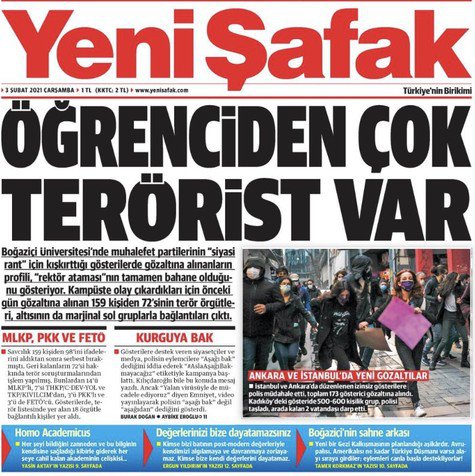
"There are more terrorists than students"
Emphasizing that the rainbow flag, representing the LGBTI+ community, is devalued and criminalized in the news, the report also shows that 65 news reports are marked by hate speech against LGBTI+s, 15 of these speeches are quoted from politicians and the most frequently quoted hate speeches are those of Süleyman Soylu, the Minister of Interior of Turkey.
Following the Boğaziçi University protests quite closely from the beginning, journalist Dilek Şen also recalls that the exhibition which was organized by the bounsergi student collective at South Campus and made the news with the "Kaaba image" was "first targeted by the channels, newspapers and news websites funded by the government or run by the capital owners close to the government, especially by Yeni Şafak newspaper."
As underlined by Şen, "afterwards, the statements from the Presidency of Religious Affairs, the Ministry of Interior and the then appointed rector Melih Bulu paved the way for the students to be arrested".
So, to put it in Dilek Şen's words again: "Sometimes they throw the first stone and politicians follow suit."
Closure of BÜLGBTI+ and disinformation
Both as an academic and documentary filmmaker, one of the closest witnesses to Boğaziçi University protests is undoubtedly Can Candan. Candan is also the director of the "My Child" documentary, focusing on the stories of LGBTI+s' parents, and the faculty advisor of the Boğaziçi University LGBTI+ Studies Candidate Student Club (BÜLGBTI+).
Candan emphasizes that what we call "Turkey's media" is in fact "divided into two": On the one side, there is "a media which reflects the truth" and on the other side, there is "a media controlled by the current government and political power holders as their propaganda tool."
Recalling that the collage featuring an image of the Kaaba with a Shahmaran (a mythical creature, half woman and half snake) figure on it and LGBTI+ flags on its corners was portrayed as "disrespect for religious values", Candan says, "In fact, there is no such disrespect."
Noting that the BÜLGBTI+ office was searched in a police raid at the night of the day when 5 students were detained over the collage, the video captured during the search was brought into circulation as well and an "Ankara-based hate speech and crime campaign was launched" in the meantime, Candan notes that the rights of BÜLGBTI+ were encroached upon twice:
The hate campaign is already an encroachment upon rights in itself; in the specific case of the student club, its closure has emerged as yet another encroachment on rights.
What is 'interesting' is that the decision to close the BÜLGBTI+ was announced by Presidency's Communications Director Fahrettin Altun on social media; he alleged that the protests that ended in 159 students' detention hours before the decision was announced "were about it all."
In other words, as it is usually the case, hate speech and propaganda go hand in hand with disinformation here.
Yeni Şafak's news now 'evidence' in trial
But how do these negative news reports affect LGBTI+s? We had better first look at the legal dimension of the problem.
Seven students, two arrested pending trial at the time, have been put on trial over the collage with the "Kaaba image", which was a part of an exhibition during the Boğaziçi University protests, and for "laying down" the image on the ground. Students now face 1 year to 3 years in prison each on charge of "provoking the public to hatred and hostility."
In the indictment underpinning this trial, it is said that the investigation was launched upon the news of daily Yeni Şafak.
While the students say over and over again at the hearings that they were targeted in the news of the related newspaper and the offense charged must be sought in this news report, the court case filed at the high criminal court is still ongoing as of December 15, 2021.
Lawyer Levent Pişkin notes that "as per the rulings and norms of the European Court of Human Rights (ECtHR), these news reports constitute hate speech and they constitute a crime as per the Article 216 of the Turkish Penal Code (TCK) since they provoke the public against LGBTI+s."
However, in spite of this, the Justice Ministry, in its response to the Constitutional Court as part of an individual application, could target LGBTI+s by calling them 'haram' (forbidden in Islam), directly quoting the indictment underpinned by the related Yeni Şafak news report.
In fact, as underlined by Pişkin, the starting point of the the investigation that ensued the raid on BÜLGBTI+ office was the same.
As for the effects of these news full of propaganda and hate, they do not remain limited to investigations, lawsuits or courtrooms.
Hate in daily life and impunity
One of the people detained during the protests and subjected to battery of law enforcement officers and violence of private security guards several times is Olcay Atik from the Chemistry Department of Boğaziçi.
Atik emphasizes that "instead of mentioning the harm suffered by LGBTI+ students as a result of the phobic practices of the trustee-rectorate, the pro-government media uses the propaganda function of the media by publishing the hateful remarks of Erdoğan and Soylu over and over again." He notes that "normalizing this media may cause extremely devastating damages."
"Especially the news reported by telling lies and abusing society through their perception of morality and religious views leads to phobic attacks, peer harassment, suicides," says Atik, recounting that he and his partner are now more easily harassed in places where they normally feel safe, sometimes by police, sometimes by people, sometimes even while walking by their house:
The fact that we are in a period when this hate can spill over us so easily must have definitely contributed to this.
So, as underlined by Yıldız Tar, all this hate speech "turns into something that is directly encountered by LGBTI+s in their daily lives."
Noting that both the news reports on LGBTI+s and the ones spreading hate speech doubled in number in the first quarter of 2021 when compared to previous years, Tar especially raises concerns about impunity:
"Just think about it... When an entire [institution of] politics, from the very top to the very bottom, says that you are 'deviant', when newspapers endorse this and when they sometimes even go beyond endorsement and portray LGBTI+s as an enemy figure, this will also lead a homosexual child living in a small village in Turkey to feel insecure, to have concerns, to fear...
"In a country like Turkey where the regime of impunity is so prevalent, we can also see that this is an encouragement for perpetrators to commit these murders, to carry out these attacks. Because they actually give the impression that attacking LGBTI+s is something legitimate in itself."
Solidarity
Going hand in hand with all this hate speech, the ensuing threats and threat perception naturally have a negative effect on LGBTI+s' visibility.
According to journalist Dilek Şen, LGBTI+s are "concerned about speaking to the press with their open identities as a result of this". "It is a very significant threat to LGBTI+s' visibility, in my opinion," she says.
Can Candan also emphasizes a similar point.
Underlining that "this feeling of 'Something may happen to me as well' felt by LGBTI+s in their living space is very concerning", Can Candan says that this feeling may lead LGBTI+s to not express themselves comfortably, it may make them feel forced to look heterosexual or it may hinder, restrict or postpone their processes of coming out.
But this bleak picture, of course, has a colorful and hopeful side to it as well, just like the rainbow itself...
Let's listen to Can Candan about the power of solidarity:
"Standing together, showing solidarity, saying, 'We are here despite you'... This is what LGBTI+ movement is all about, a matter of existence...
'We exist and we are here against your transphobia and homophobia, against your all types of discrimination, against your violence...' The LGBTI+ movement is a movement built on this anyway.
"So, in spite of all these attacks, BÜLGBTI+s and the people struggling for BÜLGBTI+ rights will not be intimidated by this. Therefore, the struggle continues, the existence continues..."
Referring to LGBTI+s visibility in this context, Olcay Atik also says, "What our visibility aims for is our honor that we protect from feeling ashamed in places where we are desired to feel ashamed."
'Handing the microphone has become rights-based'
If we come back to the question that we asked in the very beginning... What makes the news respectful for LGBTI+s' rights and existence?
The one point that everyone agrees on is undoubtedly this: What needs to be done is not to speak on behalf of LGBTI+s but to draw attention to their rights and make their voices, struggles and existence visible.
During the Boğaziçi University protests, journalist Dilek Şen underlines, "there was no one who covered these stories except for the ones who insist on journalism, question and do journalism like journalism." Şen briefly explains her approach and reporting in this process as follows:
"Even handing the microphone to the subjects of a community facing efforts to make them invisible – because existence cannot be destroyed, it will be a vain effort – has become a rights-based approach in Turkey today. LGBTI+s are subjects that 90 percent of the media will not see.
"What we did was to cover the incidents by saying that 'they were targeted' and to open them a space where they could express themselves.
During the Boğaziçi University protests, we kept their names/ surnames hidden if they were concerned about sharing this information especially because they were targeted. We used the banned rainbow flag more. We sometimes used more colors in design. We wrote the headlines in a more LGBTI+ empowering and supportive tone.
On the other hand, as emphasized by Yıldız Tar, "LGBTI+ reporting is not only about handing the microphone to LGBTI+s only about the rights of LGBTI+s". Let's listen the rest from Tar, who says that "rights-based journalism is not confining this group to talk only about their own problems":
"On the contrary, one needs to proceed with the awareness that this group is faced with social problems as much as the general public do considering that they live among this public while they are also faced with an additional problem to that existing system.
"It was also the case during the Boğaziçi University protests that we saw very few news stories that were reported through questions like 'But, how does this situation affect LGBTI+ students? What does the appointment of trustee-rector lead to on their part?'"
'Lies need to be exposed'
What is as much important as making LGBTI+s voices and existence visible in the news is undoubtedly the language use.
Emphasizing the importance of reporting on the violations of rights faced by LGBTI+s, Can Candan notes that the expressions such as "LGBTI+ individuals" and "sexual preference", which are still frequently used, emerge as expressions that we need to avoid in rights-based reporting.
According to Olcay Atik, as there is not enough education and dialogue about the rights and existence of LGBTI+s in society, the prosecutor of a hearing may ask, "What is an LGBTI+?" Atik is of the opinion the solution to this lies in writing the news stories in a more explanatory manner.
Moreover, in such an environment where hate speech and propaganda go hand in hand with disinformation, it is of vital importance that "reporters holding ethical values and a sense of freedom try to expose the lies and put forward the truth in the face of those causing these crimes against humanity."
At this point, Atik recalls that the pro-government media tried to stir public reactions against both LGBTI+s and Boğaziçi University protesters in general, but none of these efforts were reciprocated:
"I think this is the most important part of it. This formula, which they constantly use, must have bored people to such an extent that event though it attracted some attention in the beginning, it is shown by the great efforts of ours, the Boğaziçi Resisters, how badly they have handled this situation.
"So, if there is a line between the media and pro-government media, we could see some warm attitudes towards LGBTI+ rights even in the normally conservative/ slightly phobic anti-government media outlets.
"This shows that the LGBTI+ freedom has resonated in the press and among the public despite all efforts of the government."
'Both politics and media are behind society'
But, at the end of the day, can we say that the rights and existence of LGBTI+s have been reflected enough in the media in this process?
Yıldız Tar does not think so.
Then, let's end this article set out to analyze the media representation of LGBTI+s in the context of Boğaziçi University protests with the words of Yıldız Tar, who criticizes that "the problems of LGBTI+s or their presence in the protests have not been adequately represented and LGBTI+s have been made invisible in the platforms that we may call alternative media":
"Despite all these efforts, despite all these efforts to portray them as enemies, what we also see during the Boğaziçi University protests is that there is a strong unity in society when it comes to defending LGBTI+ rights and to the equality and freedom of rights.
"At this point, I can say that both the media and politics are behind society. I mean... We always tend to think that there is a society out there and there is a media which is assigned with educating it.
"In fact, it is the very contrary... They are light-years ahead of the media and its point of view in terms of LGBTI+ rights.
"I think when journalists do what they are supposed to do and look at what is happening in society, inquire and hold their microphones to the others of the issue, they can face their own backwardness as well."
About the Resilience project
Funded by the European Union The regional program 'RESILIENCE: Civil society action to reaffirm media freedom and counter disinformation and hateful propaganda in Western Balkans and Turkey' is implemented with the financial support of the European Union by partner organizations SEENPM, Albanian Media Institute, Mediacentar Sarajevo, Kosovo 2.0, Montenegrin Media Institute, Macedonian Institute for Media, Novi Sad School of Journalism, Peace Institute and bianet. This article was produced with the financial support of the European Union. Its contents are the sole responsibility of bianet and do not necessarily reflect the views of the European Union. You can have detailed information about the project here. Click here for the first report. Click here for the second report. Click here for the factsheet on Turkey |
Resilience in Journalism Articles
Media in Kurdish threatened with extinction in Turkey - Murat Bayram
Media's hate for the colors of the rainbow - Selay Dalaklı
(SD)




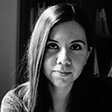
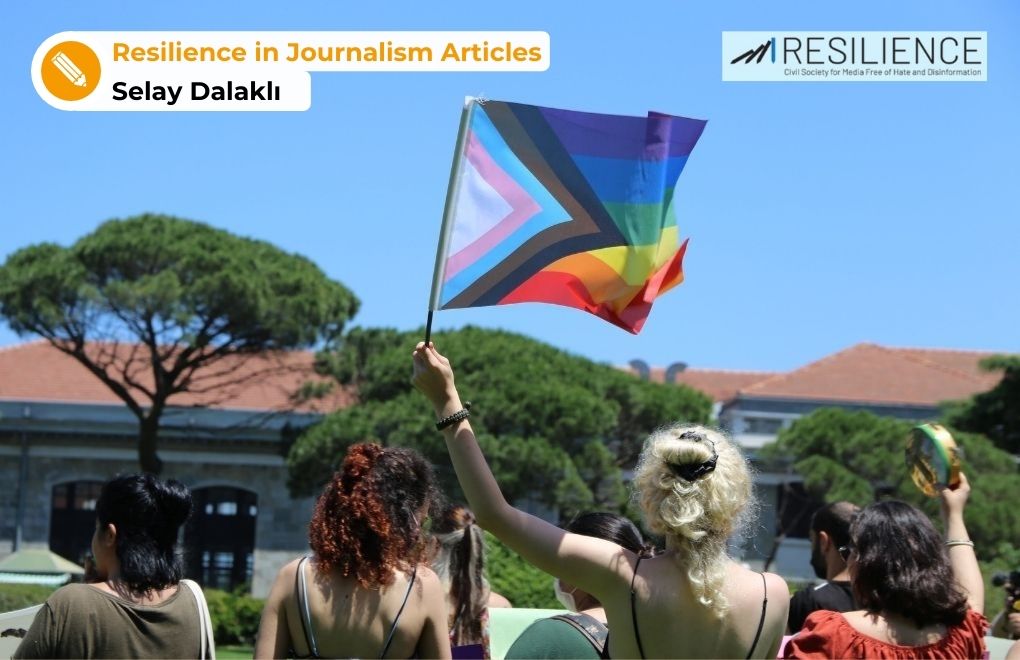

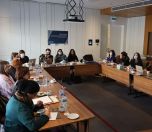
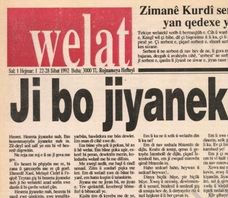
.jpg)
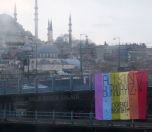
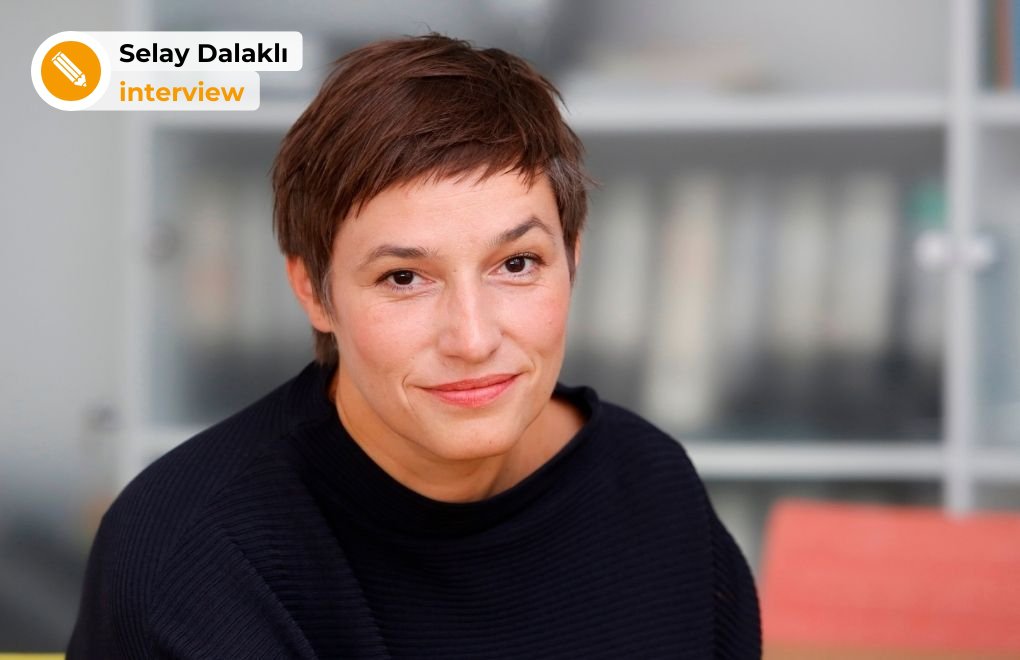
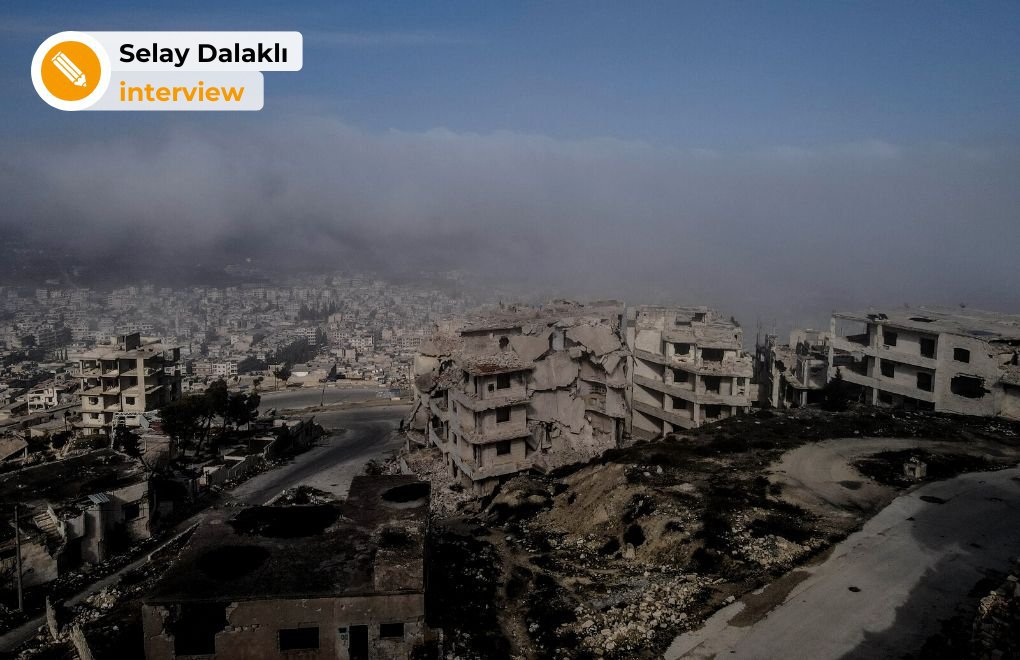
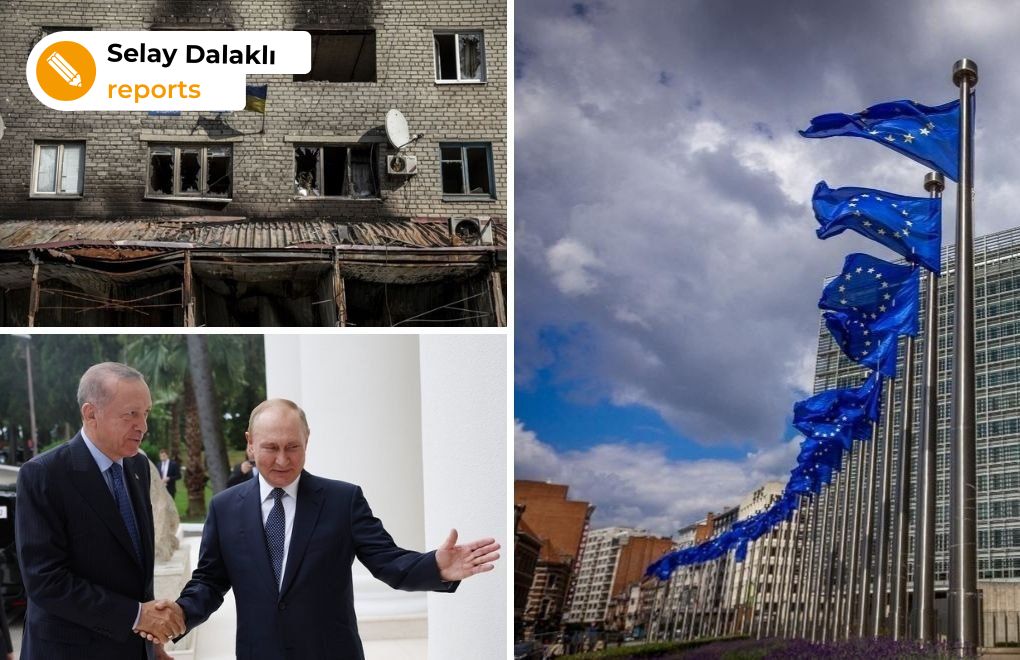
.jpg)
